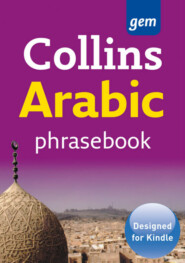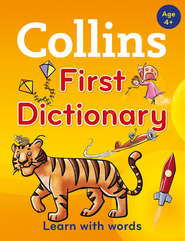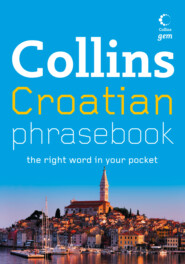По всем вопросам обращайтесь на: info@litportal.ru
(©) 2003-2025.
✖
Collins Primary Illustrated French Dictionary
Автор
Год написания книги
2019
Настройки чтения
Размер шрифта
Высота строк
Поля
Nouns are naming words for things or people. You often use the words ‘a’ or ‘the’ with a noun – eg a girl, a boy, the school, the windows.
Nouns can be singular, eg an accident, the canteen, my dad, football – or plural, eg sweets, the children, my friends.
15 How many nouns are there in the sentence below? What are they? The car has got a flat tyre and a big dent in the door.
ADJECTIVES
An adjective is a describing word which tells you what things are like: flat shoes are shoes that don’t have high heels. A flat tyre is a tyre with no air in it.
16 How many adjectives are there in the sentence below? What are they? She’s got brown hair and blue eyes.
Some words have a noun meaning and an adjective meaning. In the dictionary there is a box to tell you about this. The different meanings usually have different translations in French.
sweet
sweetcan be a noun or an adjective.
A NOUN
1 le bonbonmasc (candy)a bag of sweets un paquet de bonbons
2 le dessertmasc (pudding)Sweets: ice cream or chocolate mousse Desserts: glace ou mousse au chocolat
B ADJECTIVE
1sucrémascsucréefem (sugary)It’s too sweet. C’est trop sucré.
2gentilmascgentillefem (kind)She’s a sweet person. Elle est gentille.
3mignonmascmignonnefem (cute)Isn’t she sweet? Comme elle est mignonne!
17 You want to ask someone if they would like a sweet. Fill in the gap. How can you be sure this is the right translation?
Tu veux un __________?
ADVERBS
An adverb is a word which describes a verb or an adjective:
She writes neatly. The film was very good.
18 How many adverbs are there in the sentence below? What are they? What do they have in common? The children sat quietly and played happily.
Some words have an adjective meaning and an adverb meaning. The different meanings have different translations in French.
hard
hardcan be an adjective or an adverb.
A ADJECTIVE
1difficile(difficult)This question’s too hard for me. Cette question est trop difficile pour moi.
2durmascdurefem (not soft)This cheese is very hard. Ce fromage est très dur.
B ADVERB durColette works hard. Colette travaille dur.
19 You want to say you work hard. Fill in the gap in the sentence below:
Je travaille __________.
VERBS
Verbs are sometimes called ‘doing words’. They often go with words like ‘I’ and ‘you’, and with names, eg I play football, What do you want?, Hugo likes mashed potato.
Verbs tell you about the present: eg I’m listening; the past: I scored a goal; and the future: eg I’m going to get an ice cream.
20 How many verbs are there in the sentence below? What are they? School starts at 9.00 and finishes at 3.30.
Some words have an adjective meaning and a verb meaning. The different meanings have different translations in French.
clean
cleancan be an adjective or a verb.
A ADJECTIVE
proprea clean shirt une chemise propre
B VERB
nettoyerClean the board please! Nettoie le tableau s’il te plaît!
21 If you want to ask for ‘a clean glass’, how do you know that propre is the translation, not nettoyer?
Some words have a noun meaning and a verb meaning.
rain
raincan be a noun or a verb.
A NOUN
la pluiefemin the rain sous la pluie
B VERB
pleuvoirIt’s going to rain. Il va pleuvoir. It rains a lot here. Il pleut beaucoup par ici.











